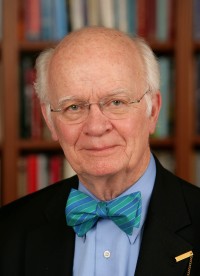Still burning
Harvard president Lawrence H. Summers is getting lots of publicity these days. In a recent Wall Street Journal article Daniel Golden mentions that Summers vetoed bids to two 54-year-old academic superstars. Why? Dean Jeremy Knowles says that Summers is concerned about the problem of “‘extinct volcanoes’—academic giants past their prime.” At 47, Summers has seven years to go before his own potential for fire goes out.
Having this month celebrated the birthday that makes me 20 years older than those two unbidden “extinct volcanoes,” I naturally got to thinking about what’s ahead. One cannot be a realist or a fair appraiser of selfhood and the stages of life and pretend that at my time of life the prospect of fiery eruptions of creativity are rich.
Annually at birthday time I page through Desmond Morris’s The Book of Ages (Viking) for inspiration. “Seventy-four has been described as the year of the elderly who still scorn old age,” Morris writes. When they reach the fast-arriving year of 75 they will finally have to accept that they are in the ‘aged’ category, but for the moment . . .”
Morris says: at 74 Franz Liszt performed in Luxemburg. Oh-oh. That was his last round. At 75 “Foxy Grandpa” Ed Delano bicycled 3,100 miles to his class reunion. At 76 Cardinal Angelo Guiseppe Roncalli became Pope John XXIII. At 77 Red Cross founder Clara Barton served in Cuba in the Spanish-American War, and dancer Martha Graham retired. At 78 the Ayatollah Khomeini started the Iranian revolution; more happily, Sir Thomas Beecham set out for a world tour as conductor; and George Cayley, the inventor of the glider, first saw one successfully glide.
At 80 George Burns won an Oscar; Levi Burlingame, the American jockey, still raced; and Marc Chagall created the sets and costumes for the Met’s Magic Flute. Artist Lucas Cranach the Elder got a new contract from Emperor Charles V. At 81 Benjamin Franklin helped frame the Constitution. Goethe finished Faust. Winston Churchill started publishing his four-volume A History of the English-Speaking Peoples. At 83 Agatha Christie saw her play The Mousetrap break longevity records on stage. Henri Matisse, winding down at 84, still created collages out of colored paper, and Monet completed his murals for the Orangerie.
At 85 Pope Pius IX broke longevity records in the papacy. Ingres was busy painting at 86. Bernard Berenson completed his autobiographical trilogy when he was 87. Konrad Adenauer began his memoirs at 88; Pablo Casals was still performing; Michelangelo couldn’t keep up with his commissions. At 89 Mary Baker Eddy still ran the Church of Christ, Scientist. Albert Schweitzer still was doctoring in Africa. At 90 Picasso, always a volcano, was far from extinct. You get the idea.
Closer to home: the name of my predecessor here, Winfred E. Garrison, was on the masthead 46 years—I match that record this year. At age 81 he was called to start the religion and philosophy department at the University of Houston, where he taught full-time into his 90s.
Charles Clayton Morrison, founder of the magazine, had his name on the masthead for 58 years. I recall him storming off the “El” and then the elevator, carrying large yellow legal pads covered with big writing—he was nearly blind—editorials in which he would berate us—“you young editors”—for being too mild. Extinction, tell Summers and Knowles, is an absolute term, a bit too brutal to use for the Garrisons and Morrisons, whose remembered fire shames “us young editors” and others of our age.





